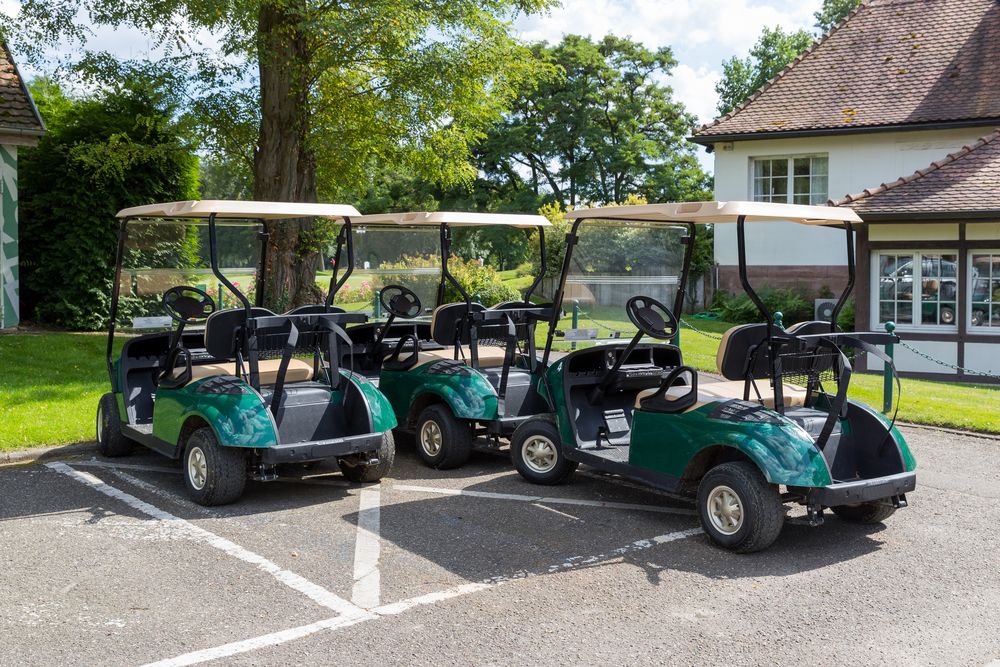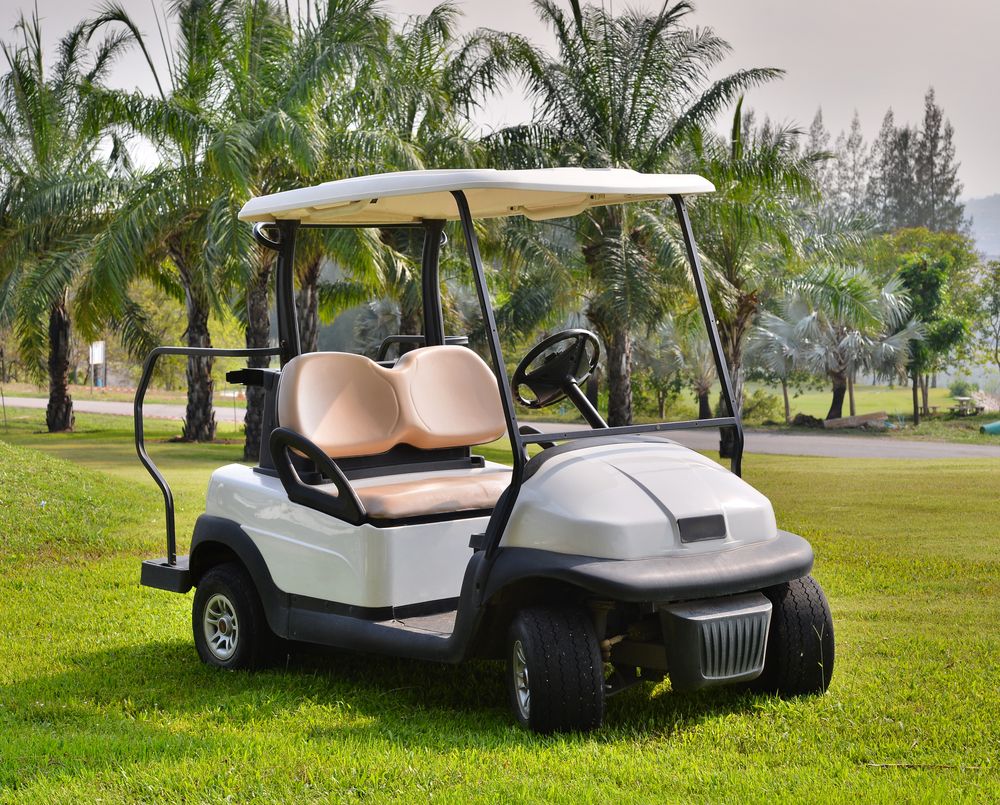
Golf carts are the preferred method of transportation for millions of golfers throughout the U.S. It’s no wonder that golf course managers and maintenance personnel place so much emphasis on the maintenance and repair of their golf cart fleets.
For many decades, the preferred battery to power a golf cart were the deep-cycle, flooded, lead-acid ones. Nowadays, more and more golf course managers are turning to lithium-ion batteries to power their fleets, as they offer several distinct advantages over the traditional lead-acid ones.
The Weight
Since lithium-ion batteries weigh but a fraction of their lead-acid counterparts, a golf cart powered by one has a significant power-to-weight ratio advantage. This means that the cart can carry more weight and reach higher speeds without the performance suffering or the power fading.
One of the biggest complaints of golfers riding around in lead-acid battery-powered carts is the lack of power when going up a hill. Lithium-ion batteries provide instant power on demand, regardless of the terrain or the level of charge left. This, in turn, helps speed up play and will allow you to get more golfers out on the course.
It also means that the golf cart can carry up to two additional average-sized adults or their equivalent in weight before maxing out in capacity. This is due to the fact that lithium-ion batteries have the same voltage outputs regardless of the level of the battery charge.
Charging
Depending on the size of your golf cart fleet, the time it takes to charge a standard lead-acid battery can significantly impact the availability of golf carts. Considering how the average lead-acid battery takes 8 hours to fully recharge, a golf cart that’s stuck in the maintenance shed is not making the course any money.
Lithium-ion batteries, on the other hand, can be recharged to around 80 percent of their capacity in just one hour. It takes less than four hours to reach 100%. This means less downtime for each golf cart and will allow the golf course the benefit of having a smaller fleet of carts.
Unlike lead-acid batteries, lithium-ion ones are not susceptible to damage if repeatedly recharged to less than 100%. Many golf courses with golf carts powered by lithium-ion batteries will perform a quick “opportunity recharge” when they are turned in at the end of the day. Within less than an hour, they’re ready to go back out on the course.
Zero Maintenance
Having to perform regularly scheduled maintenance on lead-acid golf cart batteries costs time and money. This downtime can add up as the maintenance crew needs to set aside some time to check and maintain the batteries regularly.
In addition to the saved man-hours costs, this also prevents the shop from having to purchase additional maintenance products and tools. Since there is no acid in lithium batteries, accidental hazardous spills are completely avoided.
Longer Battery Cycle Life
One of the main advantages of a lithium-ion battery-powered golf cart is that they have a much longer lifespan than a traditional lead-acid one. The average lithium golf cart battery has around 2,000 to 5,000 cycles; whereas the average lead-acid one only has anywhere from 500 to 1,000 cycles. This translates into substantial cost savings over time.
While lithium-ion golf cart batteries tend to cost more upfront, there is a considerable cost saving over time when compared to having to regularly replace a lead-acid battery. This also translates to reduced energy bills, potential repairs, and maintenance costs that are common with lead-acid golf cart batteries.
Improved Technology
Lithium-ion batteries come with a built-in Battery Management system (BMS). It helps ensure that they are not accidentally over-charged or over-depleted. The BMS continually monitors the battery so that its parameters are continually within the optimal working range.
The internal electronics of the BMS system will compare the overall condition of the battery, energy reserves, and temperature against its age. If the energy storage unit becomes too hot, multiple safety circuits will prevent it from getting too hot.
An additional Cell Supervision Circuit, (CSC) will monitor each individual cell, which helps ensure optimal performance. This translates to improved safety, reliability, and less downtime of the carts due to battery maintenance.
Continental Lithium-Ion Golf Cart Batteries
At Continental Battery, we’ve been providing our customers with high-quality batteries for well over 85 years. Our lithium-ion golf cart line of batteries provides superior performance, and when added to a fleet of golf carts, translate into huge costs savings over traditional lead-acid ones.
We’re dedicated to developing and maintaining great and long-lasting customer relationships backed up by our superior quality products. Contact us today to learn more about our company and line of car, marine, and golf cart batteries.






